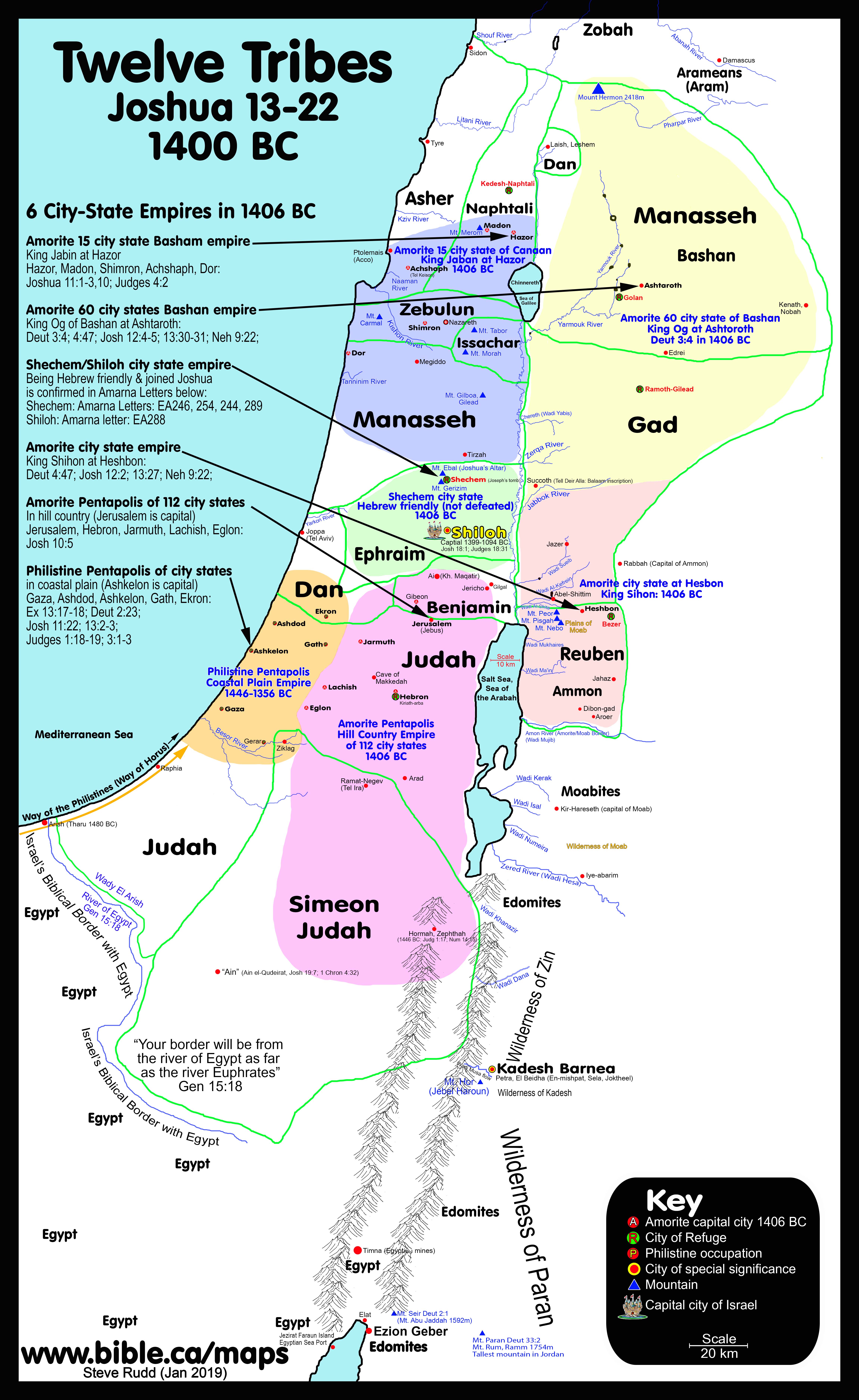In my devotion times, I’ve been reading through Joshua. Following a long string of military exploits where God worked through Joshua and Israel to conquer other kings and kingdoms in the Promised Land, chapters 13-21 are all about dividing up the land among the 12 tribes, who gets what portion, boundary lines, etc. That is a LOT of biblical “real estate” for something as mundane as property lines. Is there more significance behind this? I think so!

All the way back in chapter 12 of Genesis, God began to promise Abram and his descendants land (among other things). He promised to show Abram the land (12:1), meaning Abram didn’t know where he was going, only God did. Then in Gen. 12:7, God says to Abram as he comes into Canaan, “To your offspring I will give this land.” God repeats this promise to Abram in Genesis 13:15-17, Gen. 15:7, 18-21, Gen. 17:8, and then to Isaac (Gen. 26:3) and Jacob (Gen. 28:13-15) which Joseph also received (Gen. 50:24). There are also a host of other times God promised to Moses and Israel an inheritance of the land as recorded in Exodus, Leviticus, Numbers, and Deuteronomy. Then, God speaks to Joshua in Joshua 1, again promising the land to Israel, His people. This promise is reiterated numerous times in Joshua, bolstering Joshua’s and Israel’s confidence to go into the land and possess it with the Lord as their strength.
God then spends nine chapters of His Word giving instructions on how the land is to be allotted, all indicating God’s faithfulness to His Word. He promised and He is delivering on that promise. I believe there are other reasons for this emphasis, perhaps including that the tribes of Israel were to keep boundaries and borders, certainly between them and the heathen nations around them, but even to maintain their own tribal identity. Each tribe was distinct, just as each of the sons of Jacob were distinct with unique “blessings.” (Gen. 48-49) But at the root of it all was God’s words to His people, “I will be your God, and you will be my people.” (Gen. 17:7-8, Ex. 6:7, 19:6-7, 20:2, 29:45-46, Lev. 26:11-12, numerous times in Deut., etc.)
Today, while the physical land is not the promise we hold on to, the promise that we are God’s people and He is our God is indeed a promise we can trust in, for He is faithful. In the New Covenant (cf. Jeremiah 31:33, Ezekiel 36:22-28, we are “grafted in” to the people of God.) Paul makes this clear in Romans 11:11-24 and 2 Corinthians 6:16-17 and Peter emphasizes in 1 Peter 2:9-10. Ultimately in Revelation 21, in the new heaven and new earth, God’s presence with His people will be fully realized. As with many other elements of the Old Covenant, the spiritual realities of the New Covenant are what is emphasized in the New Testament, and this is where our focus must rest. Through it all, God is faithful, and “we have this as a sure and steadfast anchor of the soul.” (Hebr. 6:19) What God promises, He will accomplish, for His glory and our good.
